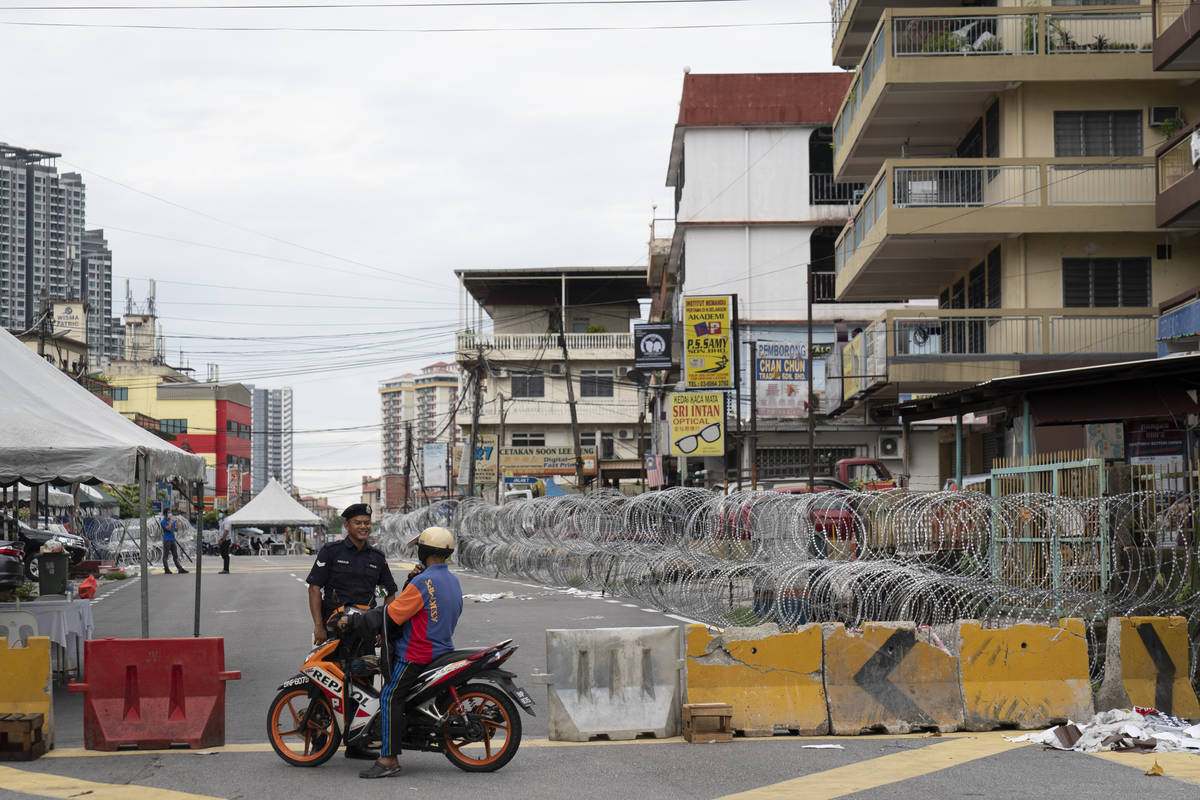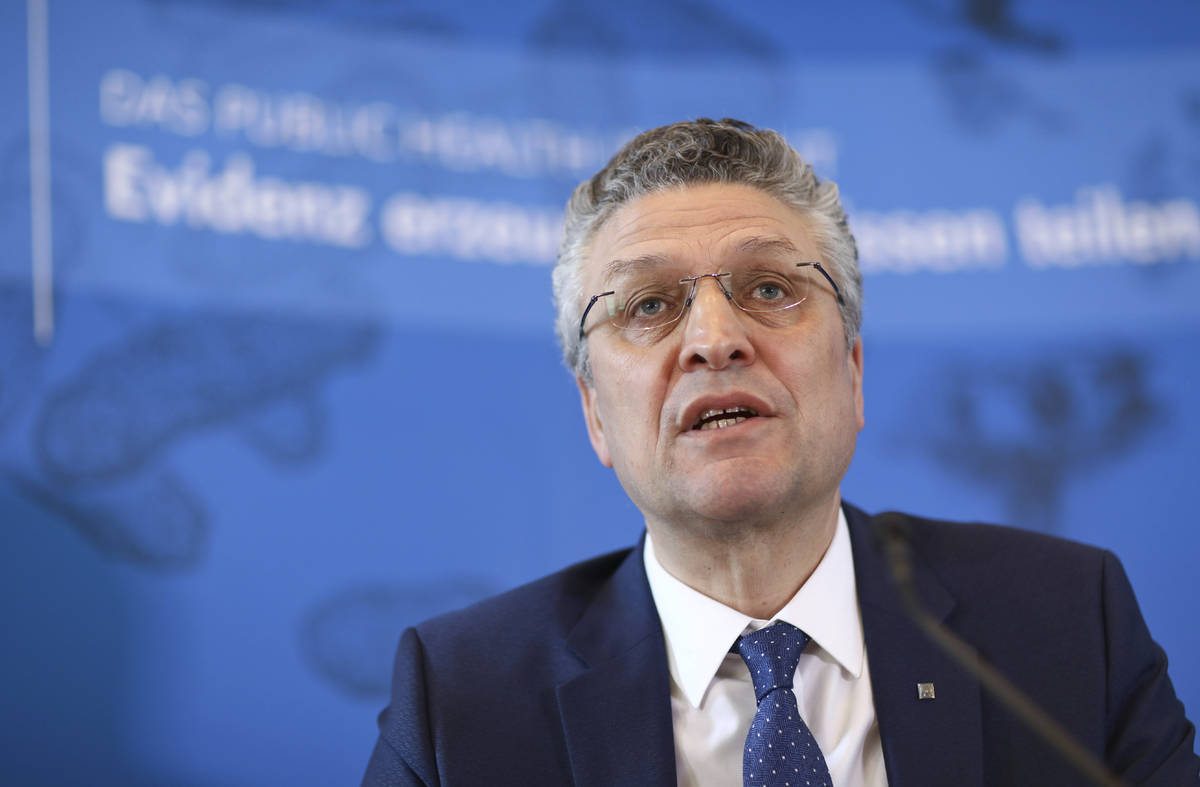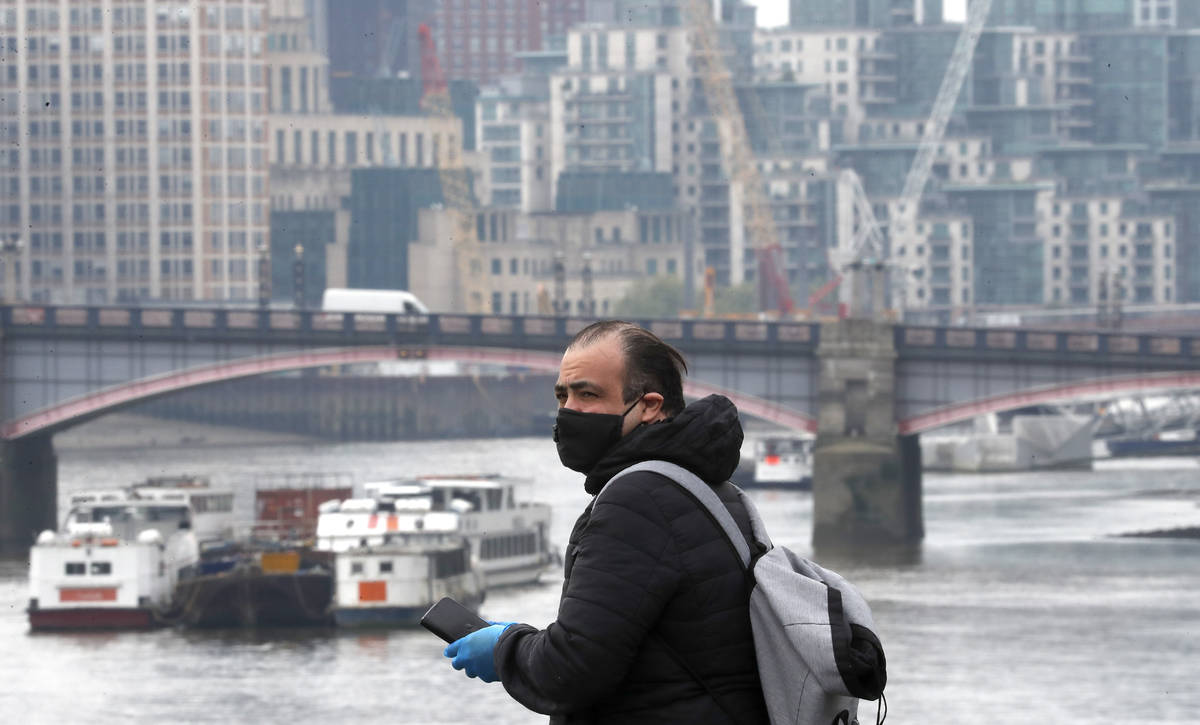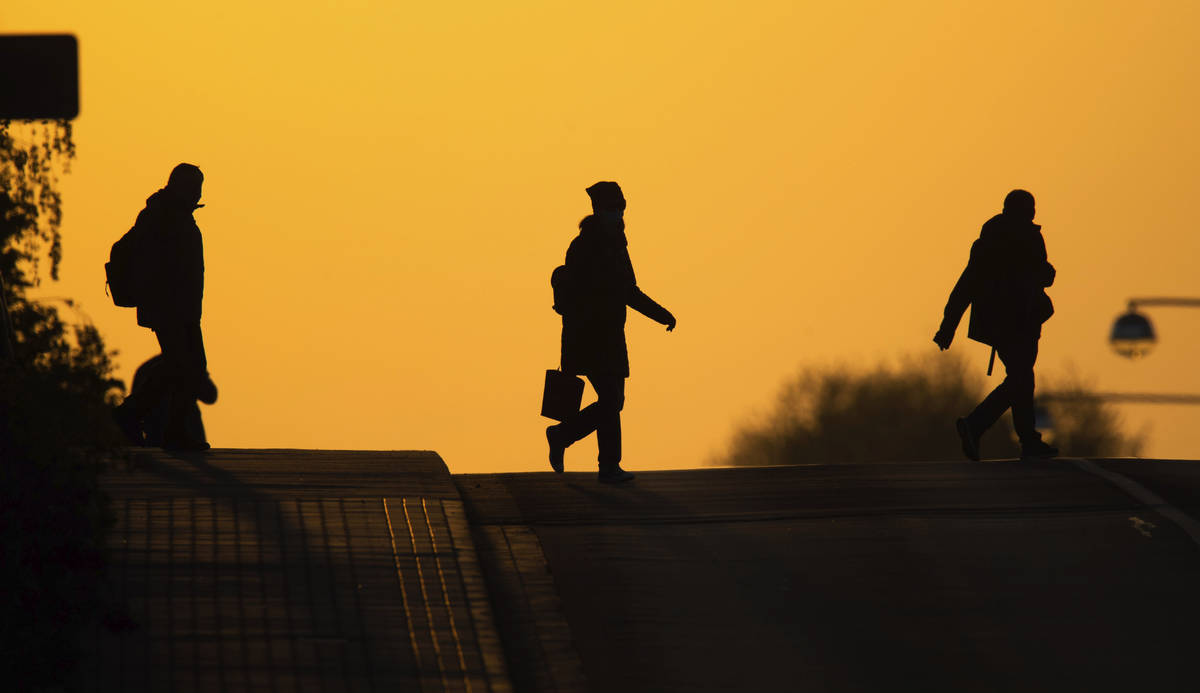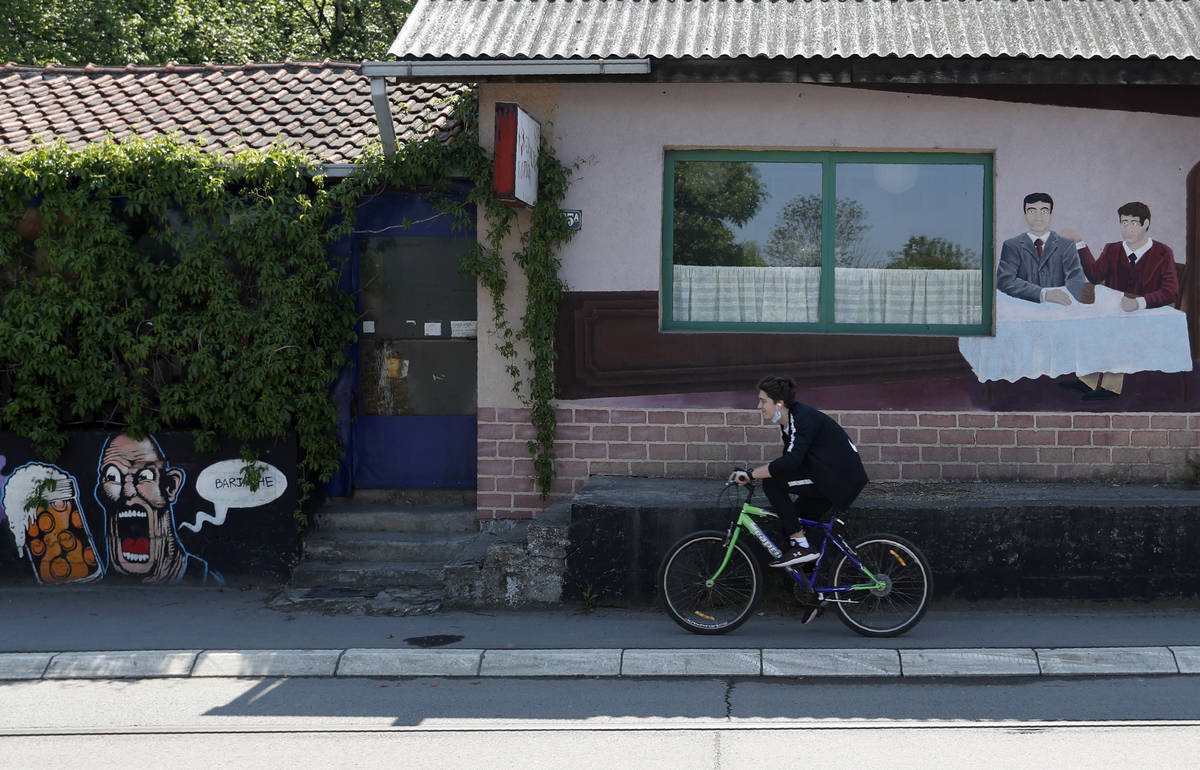Small business loan program encounters second day of delays
Banks trying to submit applications for thousands of small businesses seeking coronavirus relief loans have hit a bottleneck for a second day at the Small Business Administration.
Banking industry groups said Tuesday the SBA’s loan processing system is still unable to handle the volume of loan applications from business owners trying to get aid under the Paychceck Protection Program, part of the government’s $2 trillion coronavirus aid package. The SBA has said the slowdown is due to its attempts to limit the amount of loans any bank can submit at one time. But some banks say they’re not able to get any applications into the system.
“Today is just another slow, frustrating slog for getting PPP loans through,” said Paul Merski, a vice president at the Independent Community Bankers of America.
Businesses are seeking loans from a $310 billion second round of funding aimed at helping them retain workers or rehire those who they laid off in response to the virus outbreak. Restaurants, retailers, gyms and other businesses were forced to shut down to try to contain the virus’s spread, and other companies have seen a steep drop in revenue as customers stayed home or cut back their spending.
The SBA did not immediately respond for a request for comment Tuesday. But in a memo the agency sent to banks at midday Tuesday and obtained by The Associated Press, the SBA said it would stop banks from using a system that automatically submits applications into the agency’s ETran system. Without that system, “the loan processing system will be more reliable, accessible and equitable for all businessses,” the memo said.
But at some banks, the change means having to manually submit the applications, a much slower process, said Nick Simpson, a spokesman for the Consumer Bankers Association. Others are able to submit applications in batches of more than 5,000, but it wasn’t known how or when the SBA would process them, he said.
The $349 billion first round of funding was exhausted in less than two weeks after the SBA approved 1.7 million in loans. That initial round was also slowed by computer issues at the SBA. In this round, banks have reported that they were being allowed to submit only 350 applications an hour, if that many. Meanwhile, they have thousands on hand.
“Banks continued to try and submit applications around the clock but were often told they had reached their hourly limits after just minutes,” Simpson said.
On Monday, SBA head Jovita Carranza tweeted that the agency had approved 100,000 loans.
In other developments
— U.S. President Donald Trump said Monday that deaths in the United States from the coronavirus could reach as high as 70,000, after putting the number at 60,000 several times earlier this month.
— The Trump administration worked to draw up new guidelines for how restaurants, schools, churches and businesses can safely reopen. The administration also unveiled a “blueprint” for states to scale up their virus testing in the coming week. Still, there were doubts from public health experts that the new testing targets were sufficient.
— The U.S. Centers for Disease Control and Prevention expanded the list of people to be prioritized for virus testing to include those who show no symptoms but are in high-risk settings such as nursing homes.
— British Prime Minister Boris Johnson returned to work after a bout with the virus and warned strongly against easing his own country’s lockdown too soon: “I refuse to throw away all the effort and the sacrifice of the British people and to risk a second major outbreak and huge loss of life.”
— New York canceled its Democratic presidential primary, set for June 23, since Bernie Sanders has already conceded the nomination to Joe Biden. In a bit of encouraging news, the state reported 337 deaths for the lowest daily count this month, down from nearly 800 almost three weeks ago.
— Massachusetts recorded its 3,000th known death from the virus. The state is “still in the surge and very much in the fight against COVID-19,” Gov. Charlie Baker said.
— Worldwide, the death toll topped 210,000, according to a tally by Johns Hopkins University. The number of dead in the U.S. surpassed 55,000 — close to the 58,000 U.S. troops killed during the Vietnam War. Italy, Britain, Spain and France accounted for more than 20,000 deaths each.
Brazil an emerging hot spot
Brazil is emerging as potentially the next big hot spot for the coronavirus amid President Jair Bolsonaro’s insistence that it is just a “little flu” and that there is no need for the sharp restrictions that have slowed the infection’s spread in Europe and the U.S.
As some U.S. states and European countries moved gradually Monday to ease their limits on movement and commerce, the intensifying outbreak in Brazil — Latin America’s biggest country, with 211 million people — pushed some hospitals to the breaking point, with signs that a growing number of victims are now dying at home.
“We have all the conditions here for the pandemic to become much more serious,” said Paulo Brandão, a virologist at the University of Sao Paulo.
Brazil officially reported about 4,500 deaths and almost 67,000 confirmed infections. But the true numbers there, as in many other countries, are believed to be vastly higher given the lack of testing and the many people without severe symptoms who haven’t sought hospital care.
Some scientists said over 1 million in Brazil are probably infected. The country is heading into winter, which can worsen respiratory illnesses.
Russia shutdown extended to May 11
Russian President Vladimir Putin has extended the nation’s partial economic shutdown through May 11, saying the coronavirus outbreak is yet to reach a peak.
Speaking in a conference call with top officials Tuesday, Putin says the shutdown that began at the end of March and was to expire on April 30 has slowed contagion. Lockdowns imposed by Russian regions have kept most people, except those working in vital industries, at home.
Russia has recorded 93,558 coronavirus cases and 867 deaths. Moscow has accounted for about half of the cases.
Putin instructed the government to prepare a plan for gradually lifting the lockdown after May 11. He also promised new steps to support businesses and restore the economic damage from the outbreak.
Greece outlines gradual lifting
Greek Prime Minister Kyriakos Mitsotakis has outlined the plan for a gradual lifting of the coronavirus lockdown.
“We accepted, as a society, the need for economic activity to be paralyzed in order to save human lives,” Mitsotakis said in a televised address to the nation Tuesday. “As we limited the first wave of the virus, we are ready to pass into the second phase of our plan: the gradual de-escalation of the measures.”
However, the prime minister noted, “nobody can rule out a possible rekindling of the threat.”
Mitsotakis says the lockdown would be lifted in stages starting May 4, when some retain stores reopen and Greeks won’t have to carry a self-written document certifying they are outdoors for one of six specific reasons. Travel restrictions outside of people’s home region will remain in place for two more weeks.
Venice mayor urges lagoon tourism
The mayor of Venice is inviting tourists to see the cleaner lagoon city as a result of shutdowns to contain the spread of coronavirus.
Luigi Brugnaro says, ‘’We have seen octopuses in the Grand Canal, we have seen fish return, the waters clean. These are spectacular moments.’’
Brugnaro acknowledged tourism to the city of canals won’t reach the usual 30 million visitors. Italy is only starting to ease its two-month lockdown next week, although it remains unclear when travel between regions will be allowed.
The mayor is asking the government for financial help. He’s requested extending short-term unemployment coverage from nine weeks to a full year, guaranteed allowance of at least 600 euros ($650 dollars) to seasonal tourism workers through the first quarter of 2021 and increased state-backed loans to 50% of 2019 revenues for small- and medium-sized businesses.
Germany sees slight uptick in cases
Germany’s disease control center says the country’s rate of corona virus infections has slightly increased but the number of new infections remains at a manageable level.
Lothar Wieler, the head of the Robert Koch Institute says the “R” factor — the number of people infected by every person with COVID-19 — is now 0.96. Authorities have said they want to try to keep it below 1 to keep the pandemic manageable for the health care system.
It had been around 0.7 before Germany eased lockdown restrictions on April 20 to allow smaller businesses to open, while keeping social distancing in place. It’s too early to say whether that move has led to the increase.
Wieler is urging Germans to keep abiding by social distancing, wearing masks while on public transportation or shopping and staying at home when possible.
He says Germany currently has about 1,000 new infections reported per day, down from a high of some 6,000. The virus has infected a total of nearly 160,000 people and killed about 6,000.
Austria may soon relax rules
Austrian officials say the rate of coronavirus infections has steadied and it can soon enter a phase of relaxing lockdown measures.
Health Minister Rudolf Anschober says the country will begin winding down restrictions, starting May 1 through the end of June.
Tourism minister Elisabeth Koestinger says restaurants will reopen on May 15. She says there will still be restrictions, including shortened business hours and no more than four adults at one table and a minimum of one meter (3.3 feet) between tables.
Austria has reported more than 15,000 coronavirus cases and nearly 600 deaths. The number of new infections has slowed significantly, according to a tally by Johns Hopkins University.
Deaths in UK, Wales surge
Official figures show the number of deaths recorded in England and Wales in the week to April 17 was around double the usual amount.
The Office for National Statistics says a total of 22,351 of people in England and Wales died in the week, the highest since comparable records began in 1993. The total was 11,854 more than the rolling five-year average.
In its analysis of death certificates, which take longer to compile than deaths recorded in hospitals, the statistics agency said the coronavirus was mentioned as one of the causes of death in 8,758 cases, nearly 40% of the total.
It says 4,316 deaths involving COVID-19 had been registered up to April 17 outside of hospitals, with 3,096 in care homes. The equivalent figure for hospital deaths over the period is 14,796.
The daily figures presented by the government only show the number of people dying in U.K. hospitals, including those in Scotland and Northern Ireland. As of Monday, 21,092 deaths were reported in U.K. hospitals.
Malaysia businesses urge easing
Malaysian businesses have urged the government to end a weekslong virus lockdown following a sharp decline in infections.
Daily cases have dropped to double-digits in the past two weeks with 31 new infections reported Tuesday, the lowest since a partial lockdown began March 18. Malaysia now has 5,851 cases with 100 fatalities.
The Malaysian International Chamber of Commerce and Industry said the lockdown, which has been extended until May 12, should be lifted immediately to revive the economy and save jobs. Its president Tan Cheng Kiat said in a statement that a decision to end the lockdown must be based “not on fear but on facts.”
Tan said the lockdown was intended to flatten the curve, not eradicate the disease. He said vigilance can continue after the lockdown with strict border controls, sealing up areas with viral clusters, social distancing and good health practice.
Health officials conceded that the country has entered a recovery phase but were reluctant to end the restrictions too early until the virus can be fully curbed.
Spain deaths slow
Spain has recorded 301 new deaths of patients infected with the new coronavirus to a total of 23,822, official data released on Tuesday showed.
The figure was down from the day before, when 331 new fatalities were recorded. The country has 210,773 infections for COVID-19 that have been confirmed by the most reliable lab tests, but the real number is believed to be much higher because many patients don’t show signs of the illness or are not being tested.
Spain’s Cabinet is outlining on Tuesday how to allow people to come out of their homes for exercise from Friday and further easing of a 7-week lockdown, one of the world’s strictest during the coronavirus pandemic.
The announcement comes in the heels of a new order that is allowing children to take supervised strolls around their house for one hour per day. Officials have made a public call to be responsible and avoid crowds after people were seen in promenades and beach fronts closer than experts recommend to avoid contagion.
Discussions are under way as well on how to reactivate the economy.
Pope urges prudence, obedience
Pope Francis is calling for “prudence and obedience” to government protocols dictating the easing of coronavirus shutdowns to prevent infections from surging again.
Francis made the appeal Tuesday after Italian bishops bitterly complained that the Italian government’s reopening schedule contained no provisions for Masses to be resumed.
At the start of his morning Mass Tuesday, Francis said: “As we are beginning to have protocols to get out of quarantine, let us pray that the Lord gives his people, all of us, the grace of prudence and obedience to the protocols so that the pandemic doesn’t return.”
The government announced Sunday that funerals could resume starting May 4, but there was no information on when the faithful could attend Mass. In a statement, Italian bishops said they “cannot accept that the exercise of the freedom of worship is compromised.”
The office of Premier Giuseppe Conte’s hastily responded that it was working on protocols to allow the resumption of Masses as soon as possible but “in conditions of maximum security.”
The clash was an unusual public display of tensions between church and state over the virus-imposed curbing of public religious observance, which has been blamed for helping to spread the infection in some parts of the world.
French PM to detail reopening plan
French Prime Minister Edouard Philippe is presenting a nationwide plan to parliament Tuesday on how the country will gradually reopen schools, stores and some other businesses.
The plan is expected to include guidelines for public use of masks, and what to do on public transport as more people start going back to work.
Lawmakers are also scheduled to discuss a tracing app the French government is working on to help track the virus after the lockdown eases, and which has raised privacy concerns.
Tuesday’s plan will have a key blank spot, however: the government still doesn’t know yet when it plans to reopen restaurants, hotels, museums, which are central to France’s all-important tourism economy.
Authorities say more than 23,000 people have died with the virus in French hospitals and nursing homes, more than any other country except the U.S., Italy and Spain.
Japan to OK remdesivir
Japan said it will approve remdesivir, a closely watched antiviral drug made by Gilead Sciences Inc., for the treatment of COVID-19 patients in the country.
The drug is expected to be the first approved COVID-19 drug in Japan, ahead of a Japanese-developed anti-flu drug favipiravir.
Chief Cabinet Secretary Yoshihide Suga told reporters Tuesday that Japan has been part of a multinational joint testing of remdesivir since March and it was moving ahead overseas. Japan has a fast-track permit for emergency use of drugs approved overseas.
Remdesivir was originally developed to treat Ebola. A leak by the World Health Organization of a Chinese clinical trial suggesting the drug was not effective in severe cases, cast doubts over its effectiveness. The drug has been also used for SARS and MERS, but it is still under investigation for COVID-19.
Japan is testing favipiravir, jointly developed by Fujifilm and Toyama Chemical Co., at Japanese hospitals. Experts say both remdesivir and favipiravir can be effective when used in an early stage of COVID-19.
“We will do our utmost to deliver effective drugs for the patients as soon as possible,” Suga said.



